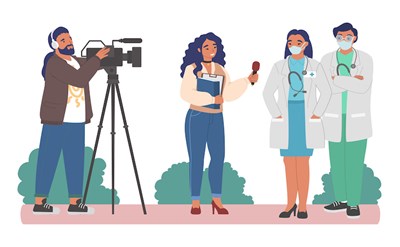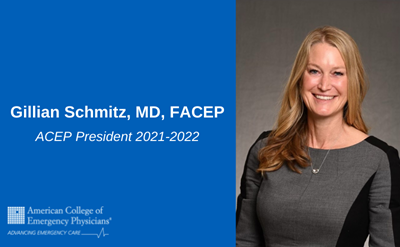WASHINGTON, D.C.— Fighting COVID-19 is taking an undue toll on emergency physicians. A teleconference hosted on Monday, October 26 at 3:30 pm EDT by the American College of Emergency Physicians (ACEP) during ACEP20—the world’s largest emergency medicine conference—will detail the results of a new ACEP/Morning Consult poll about the mental health of our frontline heroes.
Featured panelists will reveal new data about the barriers that prevent emergency physicians from seeking mental health treatment and discuss solutions to protect the physicians who are risking their lives and livelihoods to care for millions of patients.
WHAT: ACEP/Morning Consult Emergency Physician Mental Health Poll Results
WHEN: October 26th at 3:30 p.m. EDT
ACCESS: Click here to register in advance: https://acep.zoom.us/webinar/register/WN_oMQ8P5-BTzeH3pzpBiyxFQ
Webinar ID: 991 9504 8721
Or join by phone (toll free):
US: 877-853-5257 or 855-880-1246
International numbers available: https://acep.zoom.us/u/aLefXvxYB
FEATURED PANELISTS:
- Mark Rosenberg, DO, MBA, FACEP, president-elect, ACEP
- Jennifer Breen Feist, JD, and co-founder, Dr. Lorna Breen Heroes’ Foundation
- Corey Feist, JD, MBA, and co-founder, Dr. Lorna Breen Heroes’ Foundation
Stress on the frontlines is increasing while many doctors cannot seek mental health treatment due to the stigma surrounding mental illness or legitimate fear of professional consequences. Dr. Rosenberg will be joined by Jennifer and Corey Feist, sister and brother-in-law of Dr. Lorna Breen, an emergency physician in New York who tragically died by suicide while battling COVID-19.
Emergency physicians have historically had higher rates of career burnout and post-traumatic stress disorder (PTSD) than other medical specialties, and that was before the pandemic. Despite the prevalence of mental health challenges, physicians are discouraged from seeking the care they need, and many doctors are left with no better option than to suffer in silence. This new data will help the ongoing efforts of ACEP and others to dismantle barriers for physicians who seek mental health treatment and reduce the stigma of physicians’ mental illness.
 American College of Emergency Physicians
American College of Emergency Physicians







